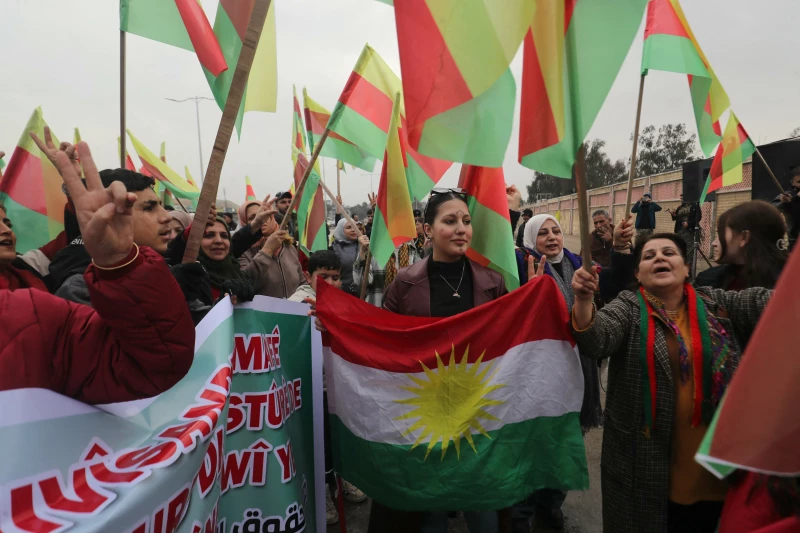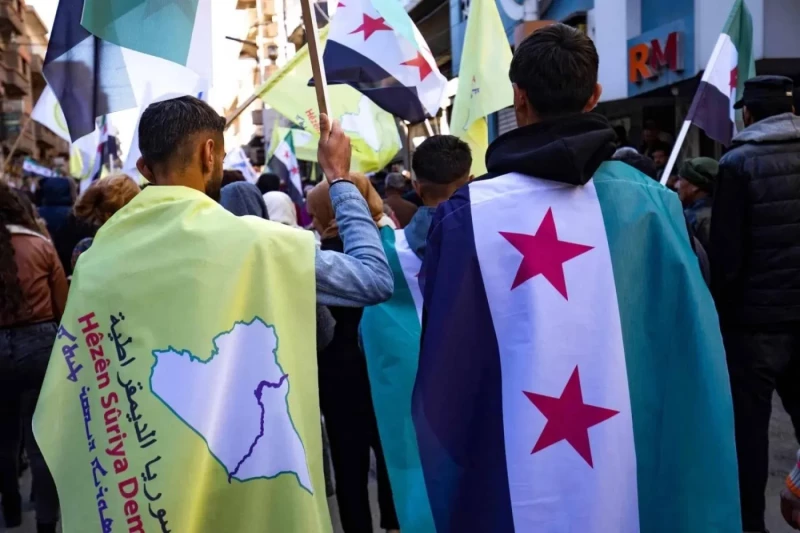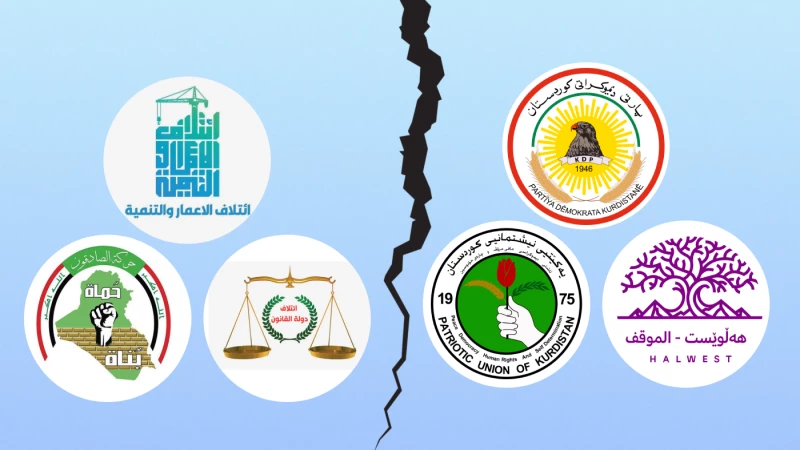The collapse of Bashar al-Assad's regime in Syria has triggered a new era, but not necessarily a better one. Iraq, sharing a 600km border with Syria, faces significant uncertainty about the aftermath of Assad's downfall. The country’s response has been shaped by sectarian and ethnic divides. On social media, many Iraqis express satisfaction over Assad’s fall, particularly as disturbing footage of the regime’s atrocities circulates online.
At the government level, reactions have been more complex. Initially, as former rebel forces advanced south of Aleppo, Iraq's Shiite-led government and armed factions reacted with alarm, vowing to prevent a rebel takeover. Iraq’s National Security Advisor, Qasim al-Araji, posted on X, "Zainab shall not be taken captive twice," invoking the historical capture of Zainab, the sister of revered Shiite Imam Hussein. Defending the Sayyida Zainab shrine in Damascus has been a key justification for Iran and its allied militias, including Iraqi groups, to intervene in Syria since 2012.
As fears of a rebel victory mounted, Iraqi armed factions reportedly crossed into Syria in early December. However, despite threats from both government officials and the Shiite factions within the Popular Mobilization Forces (PMF), Iraqi forces ultimately refrained from direct involvement in the conflict. In the end, these Shiite armed groups withdrew from Syria, marking a shift in Iraq's approach to its neighbor's turmoil.
Media reports suggest that US warnings to Iraq not to intervene on Assad's side were a key factor in Iraq's decision not to support Syria's crumbling regime. However, the weakening of the Iranian-led Axis of Resistance, particularly Hezbollah’s losses to Israel, created the opening for rebel advances. This shift in regional power dynamics likely influenced both Iran and Iraq’s calculations. A renewed Iraqi presence in Syria would have made them vulnerable to Israeli strikes, especially given Israel’s intensified military campaign in Syria in recent months.
In hindsight, Iraq’s decision not to intervene in Syria’s renewed conflict appears wise. Had Iran and its proxies and allies refrained from direct involvement since 2011, a future Syrian regime might have still sought ties with them, even if it leaned closer to Turkey geographically and ideologically.
In a meeting on Monday, Sunni groups expressed optimism about the developments in Syria, voicing their support for the country’s stability. In a video address, prominent Sunni leader Khamis al-Khanjar fervently congratulated Syrians, and urged Iraq to learn from Syria’s changes, emphasizing that “a real state is built on justice and citizenship” - a clear critique of Iraq’s shortcomings in these areas.
Meanwhile, Kurds have watched the situation with mixed feelings. While there is some relief at Assad’s departure, given the oppressive conditions faced by Kurds under Syrian Ba’ath rule, concerns are growing about the fate of Syrian Kurds at the hands of Turkey and the extremist groups it supports, which have been responsible for widespread atrocities and demographic change in areas they have controlled. Although the Kurdistan Regional Government (KRG) has remained silent on the matter, Bafel Talabani, leader of the Patriotic Union of Kurdistan (PUK), has voiced support for Kurdish rights in Syria’s future. All in all, strengthening relations with the Kurdish-led Syrian Democratic Forces (SDF) and expanding its governance to include other Syrian Kurdish groups more acceptable to Turkey will help stabilize the Rojava and northeastern Syria regions controlled by Kurds.
As Syria's new order begins to take shape, the de facto ruler of Damascus, Ahmed al-Shar’a, aka Abu Mohammed al-Jolani, has attempted to ease Iraqi concerns. In a video message, he directly addressed Iraqi Prime Minister Mohammed Shia al-Sudani, calling for a fresh start and “strategic relations”. This was significant, considering Jolani's past as an al-Qaeda figure imprisoned by US forces in Iraq for years. Sudani, in turn, has expressed respect for the Syrian people's will in toppling Assad and said Iraq will focus on the actions and not the words of the new groups in charge of Syria.
The evolving relationship between Iraq and Syria is at a critical juncture, marked by both opportunity and risk. If both nations focus on stabilization and economic cooperation, they could form a pragmatic partnership. Syria, emerging from a decade of conflict, needs stability and cannot afford antagonistic neighbors. Iraq, with its proximity and oil resources, is well-positioned to assist Syria’s recovery. In return, Syria can provide Iraq with affordable agricultural and textile goods. Baghdad has reportedly reopened its embassy in Damascus, a move welcomed by Syria's new authorities. This development provides Iraq with an opportunity to engage with the evolving political landscape in Syria. Iraq may also be more inclined to strengthen its ties with the SDF, as they do not pose a threat to Iraq's security. Notably, the SDF's ideological counterparts, the Sinjar Protection Units in Iraq, are already integrated into the PMF. Overall, Baghdad can develop and leverage multifaceted relationships with multiple actors in Syria to mitigates threats, particularly extremist jihadist activities.
Additionally, it offers Iraq an opportunity to push Syria to protect Shiite, Alawite, and Kurdish populations (if Baghdad adopts a less sectarian approach) and safeguard key non-Sunni religious sites within its borders.
The outlook for Iraq remains uncertain. If Syria’s new ruling groups descend into infighting or tensions rise with Kurdish forces like the SDF, Syria could further destabilize, creating challenges for Iraq. Internal divisions within Iraq, particularly the growing dominance of Shiite political groups in Baghdad, weaken the country's ability to respond cohesively. Kurdish and Sunni Arab participation in governance is increasingly sidelined, and the political system is marked by a divide-and-rule approach led by pro-Iran Shiite factions. The rise of Sunni rebel forces in Syria could embolden Iraq’s Sunni Arab community, particularly along tribal lines on the Iraqi-Syrian border, where many feel excluded or marginalized.
The shifting regional balance - heightened pressure on Iran from Israel and the US - could further undermine Shiite power in Iraq. If Iran’s support weakens or a rift develops between the two countries, Iraqi Shiites may prioritize their own interests over Iran’s. Adhering to the federal constitution and decentralizing power to provinces and the Kurdistan Region will be key. A fair deal with the KRG, including regular, non-politicized budget transfers and resumption of oil exports to international markets, could further stabilize Iraq’s internal dynamics. With Iran’s weakened position, Iraq has a unique opportunity to pursue energy independence, reducing its reliance on Iran, particularly if the Donald Trump administration re-imposes a maximum pressure campaign on Tehran. Over time, this could enable Iraq to rein in Iranian-backed militias and bring them under central control.
Overall, Iraq’s ability to navigate the complexities of its relationship with Syria, along with internal reforms, will determine whether it can emerge stronger or more fractured in the years ahead.

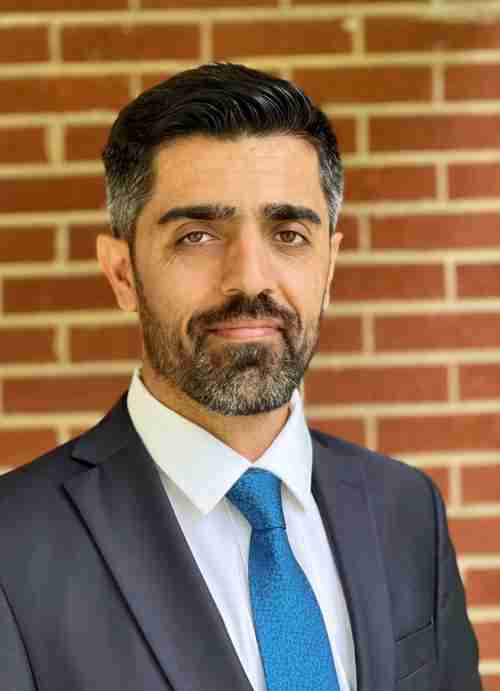
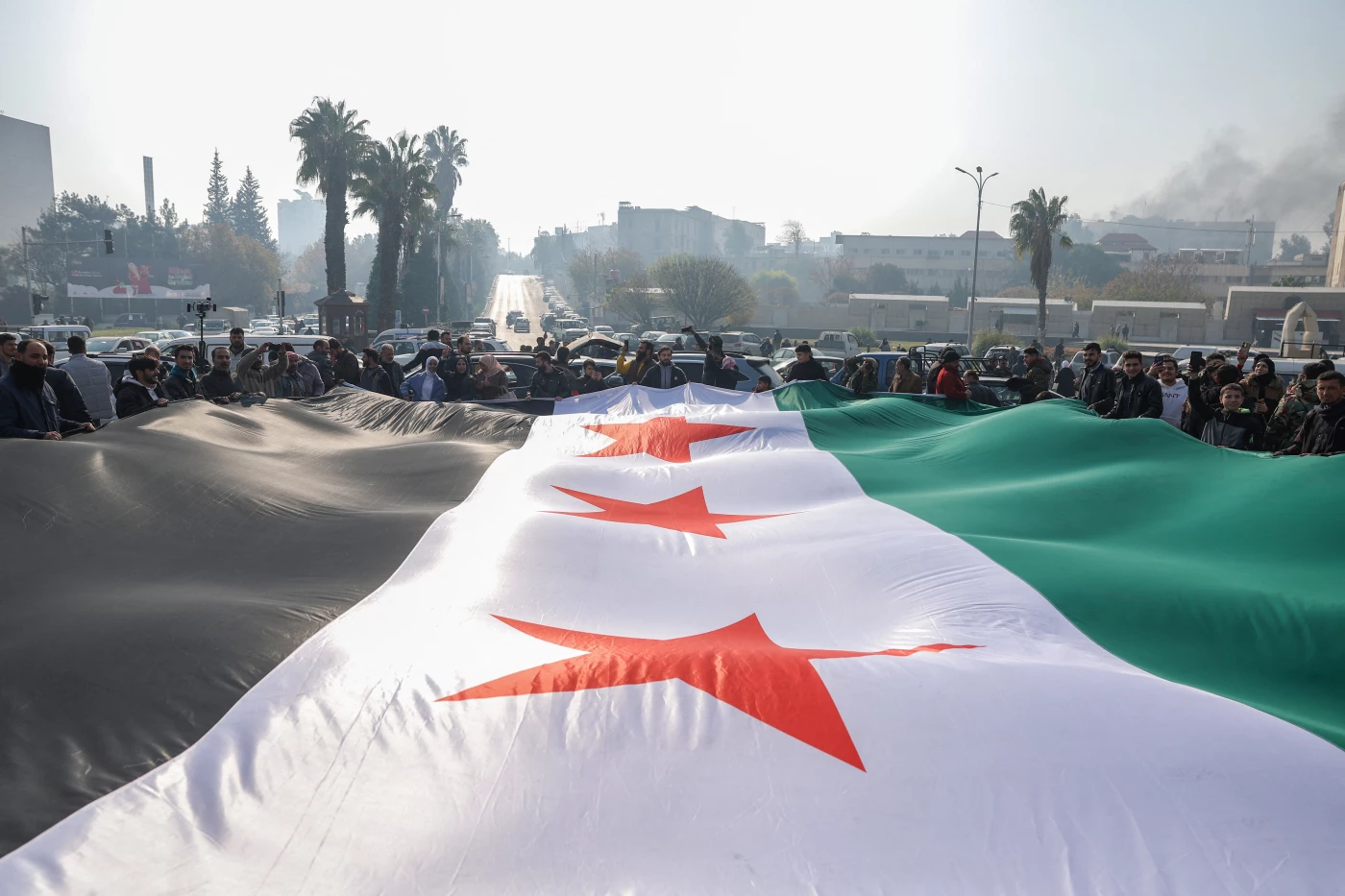
 Facebook
Facebook
 LinkedIn
LinkedIn
 Telegram
Telegram
 X
X
